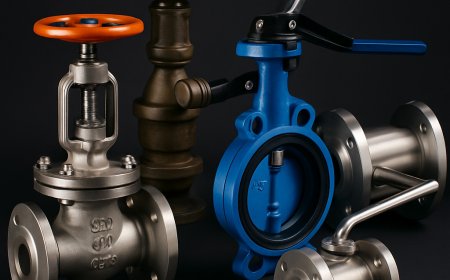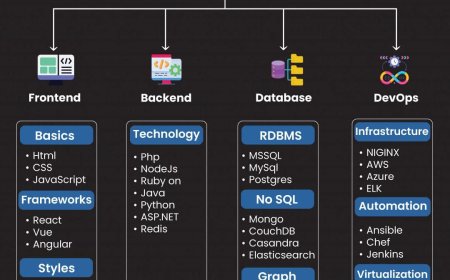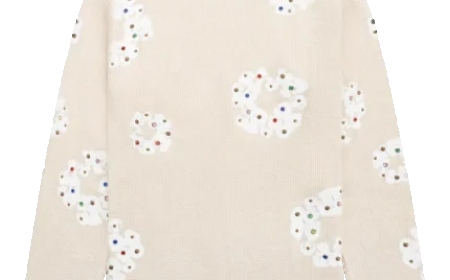Top 10 Omaha Spots for Art Workshops
Top 10 Omaha Spots for Art Workshops You Can Trust Omaha, Nebraska, may not always top the national spotlight for arts and culture, but beneath its Midwestern charm lies a vibrant, growing community of artists, educators, and creative spaces dedicated to nurturing talent through hands-on art workshops. Whether you're a beginner picking up a brush for the first time or an experienced artist looking
Top 10 Omaha Spots for Art Workshops You Can Trust
Omaha, Nebraska, may not always top the national spotlight for arts and culture, but beneath its Midwestern charm lies a vibrant, growing community of artists, educators, and creative spaces dedicated to nurturing talent through hands-on art workshops. Whether you're a beginner picking up a brush for the first time or an experienced artist looking to refine your technique, Omaha offers a surprising depth of quality art instruction. But not all workshops are created equal. In a city where creativity flourishes in basements, converted warehouses, and community centers, knowing where to invest your time—and trust—is essential.
This guide highlights the top 10 Omaha spots for art workshops you can trust—vetted for instructor credentials, student feedback, consistency of quality, studio safety, and community reputation. We’ve eliminated fleeting pop-ups and under-resourced programs to bring you only those with proven track records, transparent teaching methods, and a genuine passion for artistic growth. These are the places where creativity doesn’t just happen—it’s cultivated.
Why Trust Matters
In the world of art education, trust isn’t a luxury—it’s the foundation. Unlike traditional academic subjects, art learning is deeply personal. It requires vulnerability, time, and often financial investment. When you enroll in a workshop, you’re not just paying for materials or space; you’re entrusting your creative development to someone else’s expertise. A lack of trust can lead to wasted effort, discouragement, or even the abandonment of artistic pursuits altogether.
So what makes an art workshop trustworthy? First, instructor qualifications matter. Look for educators with formal training, professional exhibition histories, or documented teaching experience. Second, consistency is key. A trustworthy studio doesn’t change instructors or curriculum with every season—it builds a reputation over years. Third, transparency in pricing, materials, and expectations removes anxiety and builds confidence. Finally, community feedback, whether through reviews, word-of-mouth, or repeat enrollment, serves as the most reliable indicator of quality.
In Omaha, the art scene thrives on authenticity. Many of the city’s best workshops are run by working artists who teach because they believe in the transformative power of making art—not because it’s a side hustle. These spaces prioritize growth over profit, mentorship over mass enrollment, and integrity over marketing hype. By choosing a trusted workshop, you’re not just learning technique—you’re becoming part of a legacy of artistic excellence rooted in Omaha’s unique cultural soil.
Top 10 Omaha Spots for Art Workshops
1. The Bemis Center for Contemporary Arts
Founded in 1981, The Bemis Center for Contemporary Arts stands as Omaha’s most respected institution for advanced artistic development. While primarily known for its national and international artist-in-residence program, Bemis also offers a curated selection of public workshops led by visiting artists, faculty from top MFA programs, and local luminaries. Workshops here are intensive, often spanning multiple days, and focus on conceptual depth, material experimentation, and critical discourse.
Participants have included emerging artists from across the Midwest, many of whom go on to exhibit in regional galleries. Recent offerings include “Abstract Printmaking: Layering and Texture,” “Digital Collage as Social Commentary,” and “Sculptural Forms from Found Objects.” All workshops are held in Bemis’s spacious, well-lit studios with professional-grade equipment. The center maintains strict enrollment limits to ensure individual attention. Feedback consistently praises the intellectual rigor and the openness of instructors to critique and dialogue.
What sets Bemis apart is its commitment to artistic integrity. There are no “paint-by-number” classes here—only challenging, thought-provoking experiences designed to expand your creative boundaries. If you’re serious about elevating your practice, Bemis is not just a workshop provider—it’s a career catalyst.
2. The Omaha Art School
Established in 2005, The Omaha Art School has become a cornerstone of accessible, high-quality art education for all ages. Located in the heart of the Old Market, this nonprofit studio offers over 150 workshops annually in painting, drawing, ceramics, printmaking, and mixed media. What makes it trustworthy is its consistent leadership: founder and lead instructor Susan Hart has been teaching for over 30 years and maintains direct oversight of every class.
Each workshop is structured with clear learning objectives, progressive skill-building, and individualized feedback. Beginners are welcomed with foundational techniques, while advanced students receive personalized guidance to develop their signature style. The school’s open studio policy allows enrolled students to practice outside class hours—a rare and valuable perk.
Student testimonials frequently mention the supportive, non-competitive environment. The school also partners with local schools and community centers to offer scholarships, reinforcing its commitment to inclusivity. With a 92% repeat student rate and glowing reviews on Google and Yelp, The Omaha Art School is the most reliable destination for anyone seeking structured, professional instruction in a welcoming atmosphere.
3. The Clay Studio at Creighton University
Nestled within Creighton University’s Department of Art and Design, The Clay Studio offers public ceramic workshops led by faculty with MFA degrees and national exhibition records. Unlike many community centers that offer basic hand-building classes, this studio provides advanced instruction in wheel-throwing, glaze chemistry, kiln firing, and large-scale sculpture.
Workshops are offered in 6-week sessions and fill quickly due to their reputation for excellence. Instructors are active artists who bring their own studio practices into the classroom, often demonstrating techniques used in their professional work. Students have access to industrial-grade electric and gas kilns, a fully equipped glaze lab, and a comprehensive library of ceramic texts.
What distinguishes this program is its academic rigor combined with community accessibility. Tuition remains affordable, and no university affiliation is required to enroll. Many local potters credit The Clay Studio with launching their careers. The studio also hosts quarterly student exhibitions, giving participants real-world exposure and validation of their progress.
4. ArtSpace Omaha
ArtSpace Omaha is a dynamic, artist-run collective that blends gallery exhibitions with immersive, small-group workshops. Founded by a group of local painters and sculptors in 2016, ArtSpace operates out of a repurposed industrial building in the Dundee neighborhood. Its workshops are intentionally limited to 8–10 participants to ensure deep, one-on-one mentorship.
Themes rotate monthly and often reflect current social, environmental, or political issues. Recent workshops include “Eco-Printmaking with Natural Dyes,” “Emotional Landscapes in Oil,” and “Foundry Casting with Recycled Metals.” Instructors are selected not only for their technical skill but for their ability to connect art with meaning.
ArtSpace doesn’t offer certificates or grades—only growth. Participants leave with completed pieces, a deeper understanding of their artistic voice, and often lasting connections with fellow artists. The space itself is inspiring: exposed brick, high ceilings, and natural light create an atmosphere conducive to deep focus. Trust here is earned through authenticity, not advertising.
5. The Joslyn Art Museum’s Education Studio
As Omaha’s premier art museum, The Joslyn Art Museum brings institutional credibility to its art education offerings. The museum’s Education Studio hosts workshops that align with its permanent collection and rotating exhibitions, making each class a direct extension of curated art history.
Workshops are designed for adults and teens and include guided studio time following museum tours. Recent offerings include “Responding to the Impressionists: Color and Light,” “Printmaking Inspired by Native American Textiles,” and “Drawing from the Masters.” Instructors are museum educators with advanced degrees in art history and pedagogy.
What makes this program trustworthy is its adherence to high educational standards. Every curriculum is reviewed for historical accuracy and pedagogical effectiveness. Materials are museum-quality, and sessions often include access to archival resources and rare prints. While not as experimental as some independent studios, The Joslyn offers unmatched depth in technique rooted in art historical context.
6. The Creative Hub at the Durham Museum
Located within the historic Durham Museum in downtown Omaha, The Creative Hub offers a unique fusion of art and history. Workshops here are themed around the museum’s exhibits—whether it’s the 1920s, the Great Depression, or the history of transportation—and encourage participants to interpret historical moments through contemporary art practices.
Popular classes include “Art Deco Illustration Techniques,” “Photography of Industrial Heritage,” and “Mixed Media Storytelling from Oral Histories.” Instructors are often local historians or artists with interdisciplinary backgrounds. The space itself—featuring original marble floors, vintage light fixtures, and soaring ceilings—adds a layer of inspiration rarely found in standard studios.
Trust is built through the museum’s long-standing reputation and the careful curation of each program. Participants don’t just learn art—they learn how to see the world through a historical lens. This is ideal for those who want their art to carry narrative weight and cultural resonance.
7. Paint & Pour Omaha
Paint & Pour Omaha stands out as the most accessible entry point into art for beginners, but don’t mistake its casual vibe for low quality. Founded by a team of certified art therapists and practicing painters, this studio specializes in guided painting workshops that emphasize process over perfection.
Each session is designed around a specific technique—such as wet-on-wet acrylic blending, palette knife textures, or abstract expressionism—and includes step-by-step instruction, personalized feedback, and a supportive, judgment-free environment. All materials are provided, and no prior experience is necessary.
What makes Paint & Pour Omaha trustworthy is its commitment to emotional well-being. Many participants return not just for the art, but for the therapeutic space it provides. Instructors are trained to recognize and respond to emotional needs, creating an atmosphere where creativity flows freely. The studio has received recognition from local mental health advocates for its role in community wellness.
8. The Fiber Arts Collective
For those drawn to textiles, weaving, embroidery, and fiber-based media, The Fiber Arts Collective is Omaha’s only dedicated studio of its kind. Established in 2018 by a group of textile artists with international exhibition credits, the collective offers workshops in hand-loom weaving, natural dyeing, quilting, and mixed-media fiber sculpture.
Workshops are held in a sunlit, climate-controlled studio lined with looms, dye vats, and shelves of hand-spun yarns. Instructors are practicing fiber artists who regularly show work in national exhibitions and teach at universities. The collective also hosts visiting artists from across the country, bringing global techniques to Omaha.
Trust here comes from specialization. Unlike general art studios that offer one or two fiber classes, this space is entirely devoted to the medium. Students leave with not only finished pieces but also a portfolio of techniques they can continue to explore independently. The collective also maintains a lending library of rare textile books and patterns—an invaluable resource.
9. The Sculpture Workshop at the University of Nebraska at Omaha
Offered through UNO’s Department of Visual Arts, this public workshop series provides access to professional-grade sculpture facilities normally reserved for enrolled students. Led by faculty with decades of experience in metal, wood, and assemblage sculpture, classes cover welding, carving, mold-making, and installation design.
Workshops are offered in 4- to 6-week formats and require no prior experience—only a willingness to work with tools and materials. The studio is equipped with industrial grinders, plasma cutters, woodworking stations, and a dedicated casting area. Safety protocols are strictly enforced, and all participants receive orientation before handling equipment.
What makes this program trustworthy is its academic foundation and safety record. Unlike many community workshops that cut corners on equipment or instruction, this studio operates under university standards. Many local sculptors credit this program with giving them the technical foundation to launch professional careers. It’s a hidden gem for those serious about three-dimensional art.
10. The Creative Mind Studio
Founded by a former art therapist and certified art educator, The Creative Mind Studio focuses on holistic, trauma-informed art instruction. Located in a quiet, tree-lined neighborhood in West Omaha, the studio offers workshops that blend traditional techniques with mindfulness practices.
Classes include “Mindful Drawing: Observing the World with Presence,” “Color Psychology in Painting,” and “Journaling Through Collage.” Each session begins with a short meditation or breathing exercise, followed by guided art-making. The emphasis is on self-expression, not technical mastery.
Trust is built through the studio’s gentle, patient approach and the personal stories shared by participants. Many come seeking healing or clarity, and the studio’s non-evaluative environment allows them to explore without pressure. Instructors are trained in both art and psychology, ensuring that every class is emotionally safe. While not for those seeking purely technical training, it’s the most compassionate and reliable option for those seeking art as a path to inner growth.
Comparison Table
| Studio Name | Focus Area | Instructor Credentials | Class Size | Materials Provided | Repeat Student Rate | Best For |
|---|---|---|---|---|---|---|
| The Bemis Center for Contemporary Arts | Contemporary Conceptual Art | MFA, National Artists, Exhibition History | 6–12 | Yes (Professional Grade) | 85% | Advanced Artists, Conceptual Development |
| The Omaha Art School | Painting, Drawing, Ceramics | 30+ Years Teaching Experience | 8–10 | Yes | 92% | All Levels, Structured Learning |
| The Clay Studio at Creighton | Ceramics, Wheel-Throwing | MFA, University Faculty | 10 | Yes (Industrial Kilns) | 88% | Ceramic Enthusiasts, Technical Precision |
| ArtSpace Omaha | Mixed Media, Social Themes | Local Professional Artists | 8 | Partial (List Provided) | 80% | Meaning-Driven Artists, Experimental Work |
| The Joslyn Art Museum’s Education Studio | Art History-Based Techniques | Museum Educators, Art History Degrees | 12 | Yes | 82% | History-Connected Art, Academic Depth |
| The Creative Hub at Durham Museum | Historical-Themed Art | Historians + Artists | 10 | Yes | 78% | Narrative Artists, Cultural Exploration |
| Paint & Pour Omaha | Guided Acrylic Painting | Art Therapists, Certified Instructors | 15 | Yes | 87% | Beginners, Therapeutic Creativity |
| The Fiber Arts Collective | Textiles, Weaving, Dyeing | Exhibition-Quality Fiber Artists | 6 | Yes (Rare Materials) | 90% | Textile Artists, Specialized Mediums |
| The Sculpture Workshop at UNO | 3D Sculpture, Metal, Wood | University Faculty, Professional Sculptors | 10 | Yes (Industrial Tools) | 83% | Technical Sculptors, Safety-Conscious Learners |
| The Creative Mind Studio | Mindful Art, Emotional Expression | Art Therapists, Certified Educators | 6 | Yes | 91% | Healing Through Art, Non-Technical Focus |
FAQs
How do I know if an art workshop is worth my time?
Look for three key indicators: instructor background, class size, and student retention. A trustworthy workshop will list instructor credentials—such as degrees, exhibitions, or teaching history—on their website. Small class sizes (under 12) ensure personalized attention. High repeat enrollment, often above 80%, signals that students find consistent value.
Do I need prior experience to join a workshop in Omaha?
No. Many studios, including The Omaha Art School, Paint & Pour Omaha, and The Creative Mind Studio, welcome absolute beginners. Others, like The Bemis Center or The Sculpture Workshop at UNO, are designed for those with some foundation. Always check the workshop description for skill level requirements.
Are materials included in the workshop fee?
Most reputable studios include basic materials in the fee. High-end studios like Bemis and The Clay Studio provide professional-grade supplies. Some, like ArtSpace Omaha, may ask you to bring a few personal items, but they’ll provide a detailed list in advance. Avoid workshops that require you to purchase expensive supplies without explanation.
Can I take workshops if I’m not a Nebraska resident?
Yes. Omaha’s art studios welcome participants from across the country. Many workshops are designed for short-term engagement, and some even offer weekend intensives ideal for visitors. Lodging and transportation information is often available on studio websites.
Are there scholarships or financial aid options?
Several studios, including The Omaha Art School and The Bemis Center, offer need-based scholarships or sliding-scale tuition. Some also partner with local arts councils to provide grants. Always inquire directly—many opportunities are not advertised publicly.
How do I prepare for my first art workshop?
Wear comfortable, old clothing that can get messy. Bring a notebook for sketching ideas or taking notes. Most importantly, come with an open mind. Art workshops are not about perfection—they’re about exploration. Let go of self-judgment and focus on the process.
What if I miss a session?
Most studios allow one missed class per session with advance notice, and some offer make-up sessions or video recordings. Studios like The Omaha Art School provide access to open studio hours, so you can catch up on your own. Always confirm the attendance policy before registering.
How do I know if a studio is legitimate and not a scam?
Check for a physical address, verifiable instructor profiles, and real student reviews (not just star ratings). Look for social media activity showing actual classes in progress. Avoid studios with no website, no contact information, or those that demand full payment upfront without a contract. Trusted studios are transparent, professional, and patient with questions.
Can art workshops lead to professional opportunities?
Absolutely. Studios like The Bemis Center, The Clay Studio at Creighton, and The Sculpture Workshop at UNO have direct connections to galleries, exhibitions, and artist residencies. Many participants have gone on to show work locally, sell pieces, or even teach workshops themselves. Building relationships with instructors and fellow students often opens doors.
What’s the difference between a workshop and a class?
A workshop is typically short-term (1–5 days) and focused on a specific technique or theme. A class is longer (weeks to months) and follows a progressive curriculum. Workshops are ideal for trying something new; classes are better for deep skill development. Many Omaha studios offer both, so you can start with a workshop and continue into a class.
Conclusion
Omaha’s art workshop scene is a quiet triumph—a network of dedicated spaces where creativity is nurtured with integrity, not spectacle. These top 10 studios have earned trust not through flashy ads or celebrity names, but through consistency, expertise, and a deep respect for the artistic journey. Whether you’re drawn to the intellectual rigor of The Bemis Center, the therapeutic calm of The Creative Mind Studio, or the technical mastery of The Clay Studio at Creighton, there’s a place here that aligns with your goals.
Choosing a trusted workshop means choosing a community that believes in your potential. It means investing in instruction that doesn’t just teach you how to paint or sculpt—but how to see, think, and express more deeply. In a world that often prioritizes speed over substance, these studios stand as quiet beacons of patience, craftsmanship, and human connection.
Don’t wait for inspiration to strike. Find the space that calls to you, register for a workshop, and begin. The canvas, the clay, the loom—they’re waiting. And in Omaha, the art community is ready to walk beside you every step of the way.





















